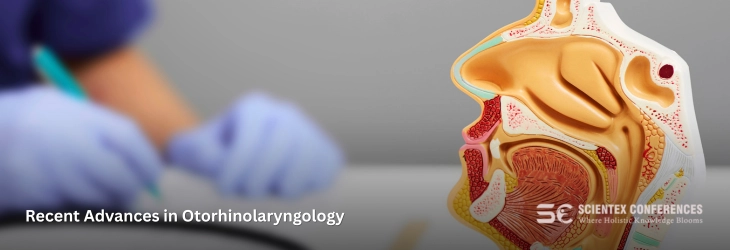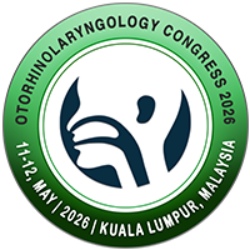Track: Recent Advances in Otorhinolaryngology

Session Overview:
This session will focus on the intricacies and advancements in the field of Otorhinolaryngology, highlighting the latest diagnostic, surgical, and therapeutic innovations that are reshaping clinical practice. Participants will explore groundbreaking developments such as transoral robotic surgery (TORS), endoscopic ear and sinus procedures, biologic therapies for chronic inflammatory conditions, and the integration of artificial intelligence in ENT diagnostics. The session will also address advancements in cochlear implant technology, minimally invasive techniques, and personalized treatment approaches in head and neck oncology.
Recent development:
Recent advancements in otorhinolaryngology have significantly transformed the diagnosis and management of disorders affecting the ear, nose, throat, and related structures of the head and neck. Innovations such as minimally invasive endoscopic techniques have revolutionized sinus and ear surgeries, allowing for greater precision and faster patient recovery. The introduction of transoral robotic surgery (TORS) has expanded the possibilities for treating complex head and neck cancers with reduced morbidity. Furthermore, developments in cochlear implant technology and auditory brainstem implants have enhanced hearing restoration options for patients with severe hearing loss.
Sub Track:
Transoral Robotic Surgery (TORS):
Transoral Robotic Surgery has revolutionized the treatment of oropharyngeal cancers by allowing surgeons to remove tumors through the mouth without external incisions. This minimally invasive technique results in less pain, faster recovery, and improved functional outcomes for patients.
Endoscopic Ear Surgery:
Endoscopic ear surgery provides enhanced visualization of the middle and inner ear structures using a minimally invasive approach. This technique improves precision, reduces surgical trauma, and shortens patient recovery time.
Biologics in Chronic Rhinosinusitis:
Biologic therapies target specific inflammatory pathways involved in chronic rhinosinusitis, offering new hope for patients who do not respond to conventional treatments. These targeted medications help reduce nasal polyp size and improve breathing and quality of life.
Cochlear Implant Technology:
Recent advances in cochlear implant technology have improved sound processing capabilities, enabling better speech perception in noisy environments. These innovations have also expanded candidacy criteria, allowing more patients with varying degrees of hearing loss to benefit.
Artificial Intelligence in ENT Diagnostics:
Artificial intelligence is increasingly being utilized to enhance diagnostic accuracy in ENT by analyzing complex imaging and clinical data. This integration helps in early disease detection, personalized treatment planning, and improved patient outcomes.
Scientific Highlights
- Anatomical and Physiological Disorders of ENT
- Lung Disease Airway Issues
- ENT Infections and allergies
- New treatment Advances in Otolaryngology
- Ear & Nose plastic surgery
- Endoscopic and laparoscopic ENT surgery
- Craniofacial & Facial surgery
- Otology and Neurotology
- ENT Microsurgery
- COVID 19 and ENT
- Pediatric Otolaryngology
- Speech and Swallowing Disorders
- Head and Neck Surgery
- Airway Management & Surgery
- ENT Allergies & Immunotherapy
- Surgical Techniques in ENT
- Nasal Polyposis and Biologic Therapy
- Advances in Cochlear Implants
- Recent Advances in Otorhinolaryngology
- Vertigo and Balance Disorders


